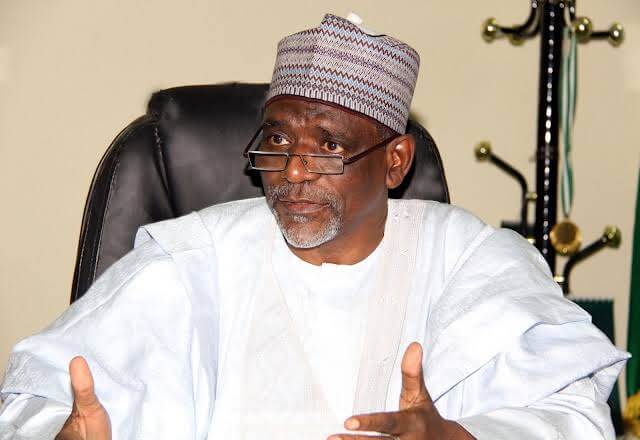Probate can seem like a scary word to hear if you’ve just lost someone close to you. If they had one, did they leave behind any property to be distributed?
Is there anything left to do? What do you need to know about probate?
It’s not as hard as it seems, and there are steps you can take to make sure that your loved one’s wishes are respected when it comes to what happens with their estate.
This step-by-step guide will explain everything you need to know about probate.
What is probate?
Probate is the court process that determines who inherits a person’s property when they die.
If someone dies with a will, probate is not necessary. The executor of the will collects the assets and pays any bequests or taxes and distributes what remains according to what was specified in the will.
If there is no will, then probate is necessary. The executor can be an individual or an institution such as a bank, trust company, public administrator or law firm.
Who needs to go through probate?

It’s possible that you or someone in your family may need to go through probate.
If you are the executor of a will, this means that you need to take care of the deceased’s final affairs and distribute their assets accordingly.
That usually includes paying off debts and taxes, making sure beneficiaries get what they’re owed, and taking care of any property left behind by the deceased.
There is also the matter of distributing personal items such as clothing, furniture, jewelry and so on among loved ones if appropriate.
The process can vary depending on where the deceased lived – for example if it was in one of the nine states with community property laws (Arizona, California, Idaho, Louisiana, Nevada, New Mexico, Texas, Washington or Wisconsin) then you’ll have to decide how much each spouse gets based on whatever documents they signed when they got married.
When is probate required?
Probate is the legal process of proving the validity of a will. It is required when someone dies without leaving a will or if they did leave a will but it can’t be found.
This means that their assets must be distributed according to their wishes even though they are not able to do so themselves.
If this happens, you’ll have to take care of the necessary paperwork and notifications before any decisions can be made about how your loved one’s estate should be divided.
How long does the probate process take?
The probate process typically takes anywhere from six months to a year. It all depends on the size of the estate and if there are any disputes among the heirs.
The executor is responsible for sorting out these issues and making sure that everything is in order before distributing assets.
If an executor is not named or cannot be located, then the court will appoint someone who will take charge of settling the estate.
Usually, this person is a family member, friend or lawyer who has experience with probate matters.
What happens if you have property abroad:

If you have property abroad, then your executors will need to contact their own country’s authorities about how best to proceed with transferring your property so it can be distributed according to your will.
How much does probate cost?
Probate costs vary depending on the state, and can include court filing fees, attorney fees, executor fees, and other related expenses. The average cost of probate is around 5% of the estate’s value. So for an $800,000 estate, the total cost might be about $40,000 in various court and legal fees.
This is because, a will distributes your assets as you have instructed in your document.
It can also provide for guardianship for children or pets if necessary.
If you die without a will your assets may be distributed according to state law.
Who manages the estate during probate?
If an individual dies without a will, the probate court will appoint an administrator (also called an executor) to oversee the distribution of assets.
The person appointed as administrator is typically someone close to the deceased, such as a spouse or child.
If there are no loved ones, then the court appoints a professional fiduciary.
In some states, spouses can be appointed administrators if they have not been married less than two years and were never divorced from the decedent.
What happens after you’re named an estate administrator?
First, you need to complete an inventory of all assets and liabilities in order to assess how much money is needed for funeral expenses and other personal debts before distributing any remaining funds among beneficiaries.
What are the responsibilities of the executor?
An executor is a person who is designated in a will, trust, or power of attorney to handle an estate. The executor typically handles the legal and financial matters related to the estate.
This includes paying debts and taxes owed by the decedent, as well as distributing property to beneficiaries according to the terms of the will or trust.
How are debts paid during probate?
Debts are paid through the probate process, which is a legal process where a court oversees the distribution of property from someone who has died.
Some debts, such as mortgages and car loans, may be taken care of during probate by the executor of the estate.
However, many other types of debt must still be dealt with separately.
For example, credit card balances will remain on your account until you pay them off in full or they reach their expiration date (whichever comes first).
Other types of accounts that might need to be handled separately include: utilities, taxes owed, child support obligations and student loans.
Are there any tax implications of going through probate?
Probate is a court-supervised process that determines who will receive the assets of the deceased person, and how those assets will be distributed.
It usually ends when the executor distributes all of the deceased’s property according to their last will and testament.
Most wills state that probate is not required for the distribution of property under certain circumstances, such as if there are no debts or if all debts have been paid.
Conclusion
Probates are one of the last things you want to deal with when you’ve lost a loved one, but they’re necessary in order to give their estate the best chance of being properly distributed.
That said, probates can be avoided if your loved one created a will and named an executor who is willing and able to take on the responsibility.






